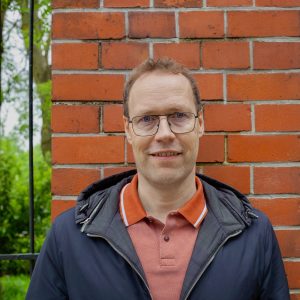VU academics blog monthly about improving societal connectedness at advalvas.vu.nl/column-blog/
“Poetry makes nothing happen”, W.H. Auden famously wrote in 1939, as the world was preparing for another world war. It was a strange comment to make by a poet who earned his living writing poetry. Imagine Picasso at the time saying that painting has no effect whatsoever, or Le Corbusier asserting that architecture is good for nothing. Yet Auden presented a view that few people nowadays would disagree with. Poetry does not cure diseases; nor can it prevent wars or other calamities from happening.
Like other art forms, it seems to provide something extra in people’s lives, something decorous and beautiful, but it is essentially something inessential to life.

Other contemporary poets agreed with Auden. Adrienne Rich, a poet who was deeply influenced by Auden, warned wittily that “poetry is not a healinglotion, an emotional massage, a kind of linguistic aromatherapy.” William Carlos Williams agreed with Auden and Rich that the use and function of poetry is hard to discern when he wrote: “It is difficult to get the news from poems”, but he hastened to say that “men die miserably every day for lack of what is found there.” Williams claims that poetry may feel unimportant, and yet that paradoxically our lives depend on it.
As a poetry scholar and a literary historian by training, I have tried to both deny and accept the lack of obvious meaning or purpose of poetry in contemporary society. I have tried to deny it by writing about how poets responded to cataclysmic events in the 20th century and interpreted world events in a uniquely different way. I have accepted it by also writing about different topics, such as history, politics, and other arts forms, and using the poetic only as a lens to gauge at the world. I am not entirely satisfied with either of my approaches, however, and I think my dissatisfaction is connected to my belief that poetry can connect people around the world, and historically, through the ages.
And yet people do not seem to be open to this possibility.
Despite our connectedness through digital devices and in our globalised world, there is simultaneously a disconnectedness that plagues the planet. The first time I became aware of poetry’s connecting power was when I read a poem by the American poet Walt Whitman in college. The poem was called ‘Crossing Brooklyn Ferry’. It detailed how throngs of people commuted from Manhattan to Brooklyn on a ferry, and how the speaker is just one of those commuters going home after a weary day.
As Whitman’s lines flowed from one stanza to the next, it gradually dawned on me that Whitman was trying to make a connection with me ages and ages in the future, a reader whom he had never met: “It avails not, time not place – distance avails not, / I am with you, you men and women of a / generation, or ever so many generations hence. / Just as you feel when you look on the river and sky, so I felt.”
This shock and surprise, of simultaneous sameness and difference, has stayed with me, and it has influenced all of my teaching and research, but in imperceptible ways. Other poets have reawakened that sensation of connection, for instance Mary Oliver in ‘Wild Geese’: “Whoever you are, no matter how lonely,” she wrote, “the world offers itself to your imagination, / calls to you like the wild geese, harsh and exciting – / over and over announcing your place / in the family ofthings.”
Poetry, as Whitman’s and Oliver’s lines show, has staying power, has connecting power, but perhaps only or mostly on an individual level. While Auden asserted that poetry made ‘nothing happen’ in the world, he also suggests that poetry ‘survives’. It survives “in the valley of its making where executives / Would never want to tamper, flows on south / From ranches of isolation and the busy griefs.” Poetry is “a way of happening, a mouth”, he concludes. How can we make sense of that? The way I choose to read it is that while poetry may not publicly affect a great many things, it does endure and can communicate messages across time and space. It can be an antidote to ‘isolation’ and ‘busy griefs’, even if it does not have healing power. Perhaps poetry makes nothing happen, but it can influence people personally and privately. And that is actually quite something.
